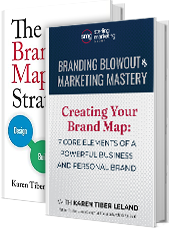Summary:
The article discusses how voters evaluate candidates’ brands, drawing parallels between political campaigns and business branding. It highlights the significance of personal alignment, local issues, and global competence in shaping voter decisions. With the political landscape evolving, substance is predicted to outweigh style as voters prioritize candidates’ ability to address critical issues. The author emphasizes the importance of these principles in both political and business contexts, stressing the need for alignment with customer values and effective issue resolution.

It was a banner night for Bernie Sanders, who at 55 percent handily beat out Hillary Clinton to win the New Hampshire primary. Bernie was able to hit this home run because of his consistent personal brand and on-point message to millennials. But he was also able to get there, in large part, because it was only a two-horse race. Unlike the Republicans, who — at eight contenders — have quadruple the number of players. Consider Trump. While the winner at 35.3 percent, did not exactly score a mandate. When seven other people are splitting the vote, it doesn’t take much to reach the top of the heap. That’s not to take away any kudos from Trump’s brand, impressive win, popularity or strategy.
In fact, Mr. Trump’s strategy of putting the other Republican candidates on the defensive, so they double down in an effort to protect their flanks, seems to be working. At least it’s working to keep his colleagues in the race. But I have to wonder, watching all this, “Are they just staying in it for the sake of their egos?”
Although South Carolina is a different animal than New Hampshire, you have to question whether the Republican Party needs to get its act together, decide to be a team, and reduce the playing field enough to let a true favorite rise to the head of the pack.
Let’s face it: Any successful politician (or businessperson for that matter) needs a healthy dose of ego to do what needs to be done. But when it gets to the point where it’s damaging the team, has it gone too far? And an ego gone too far is not a good quality in a President, or any leader for that matter.
In what’s certain to now become a very expensive race to run, some of these Republican candidates might want to consider cutting their losses and giving their votes to a more viable candidate as we move on.
At this point in the race, I believe political substance will start to trump (no pun intended) style. Not that style won’t matter, but as the race moves, so will the voters’ decision meters. Three aspects of the candidates’ brands will impact the box they check in the polling booth.
Personal: How does this candidate align with my personal views? Some voters put aside all considerations of domestic and international policy and vote along the lines of their values. For example: Evangelicals are often one-issue (e.g., right to life) voters.
Local: How do I think this candidate will deal with the significant domestic issues we are facing? Take, for example, the chord Sanders has struck with college students regarding economic fairness and educational issues.
Global: Do I believe this candidate has what it takes to handle the global issues facing the world today? This is where Hillary has a real strong suit, but for some reason has not been taking advantage of it. Allowing Sanders to define the narrative around the “progressive” label, she has so far missed her opportunity to convince the voters most concerned with global issues that she is the one.
Because I’m always interested in how these things translate into everyday business, I think a parallel can be drawn between how voters choose their candidate and how customers choose their providers.
- How does this company align with my personal views? Customers today are more concerned than ever with the degree to which a business matches their values. Issues such as sustainability have become fulcrums upon which purchase decisions rest for some customer groups.
- How do I think this company will deal with me when I have a personal issue that needs attending to? For example: A company with an excellent reputation for standing behind their products and services is often the provider of choice for customers looking for a stand-up company to support with their dollars.
- Do I believe this business will do the right thing in the face of a major problem? In other words, will these folks act quickly to fix a f…up of their own making? Companies that have shown a history of taking responsibility and moving to make amends and repairs with speed and grace are often the winners in the reputation game.
Whether you are candidate running for political office or a business pitching for patronage, you would do well to remember that people vote for you (in the ballot box and with dollars) based on the three critical criteria of your brand – personal, local and global. Your best ground game is to be a winner in all three.
This article is copyrighted by Karen Leland and cannot be reprinted in any form, electronic or otherwise, without the express written permission of Karen Leland.
Karen Leland is President of Sterling Marketing Group, a branding and marketing strategy and implementation firm. She works with individuals, businesses and teams to enhance their business and personal brands. Her clients include LinkedIn, American Express, Apple, Marriott Hotels and others. Her ninth book, The Brand Mapping Strategy: Design, Build and Accelerate Your Brand, is due out from Entrepreneur Press in May of 2016.
